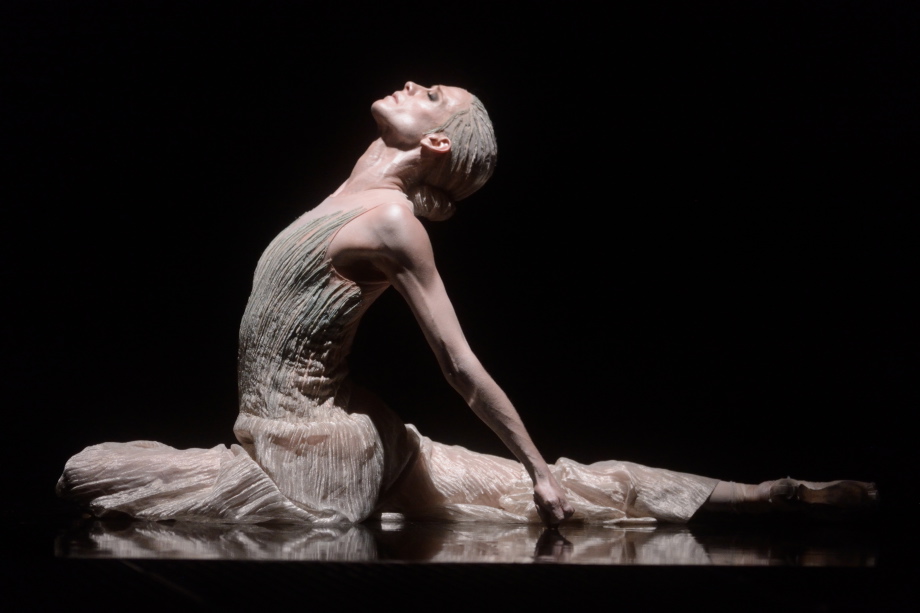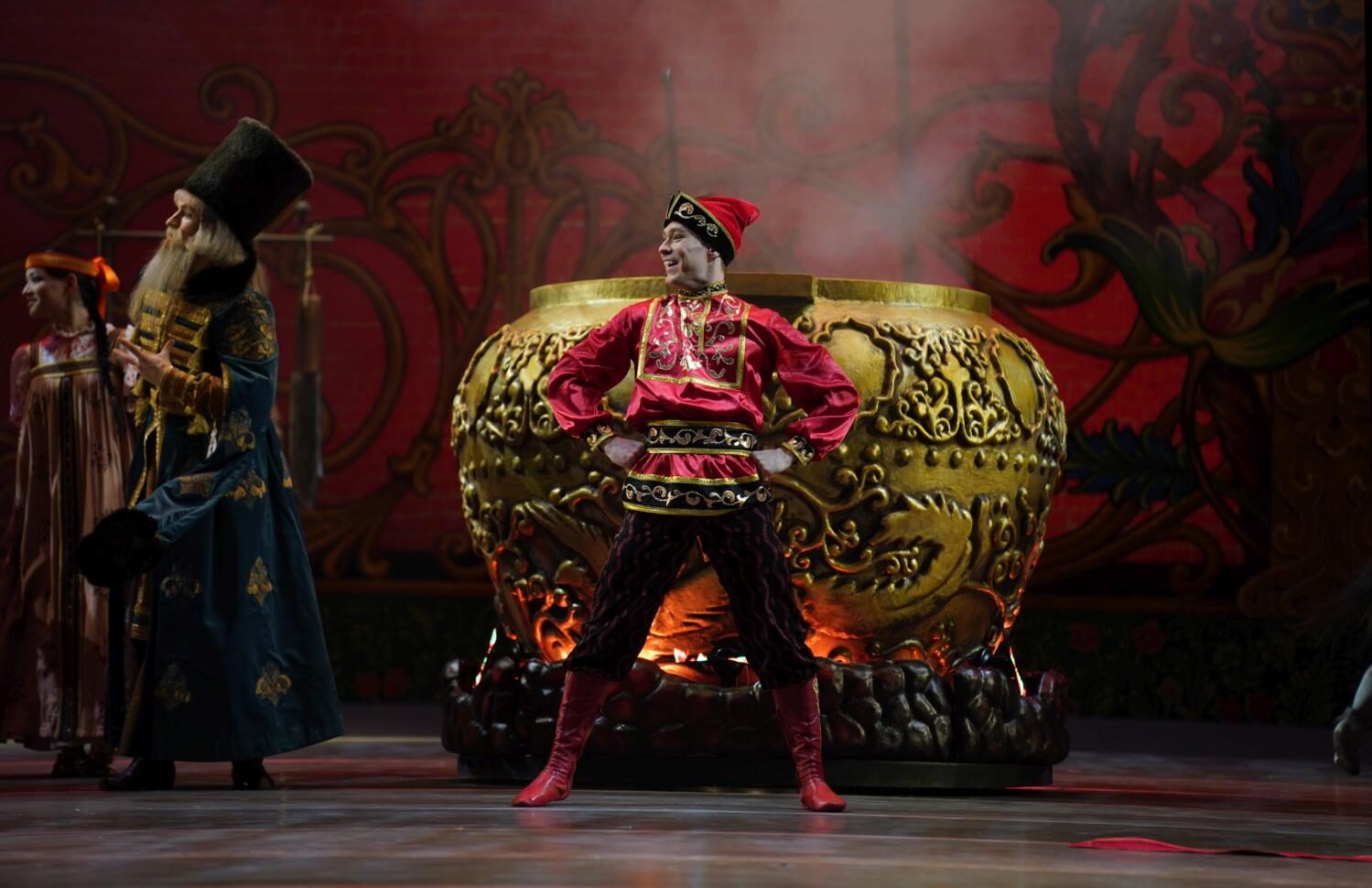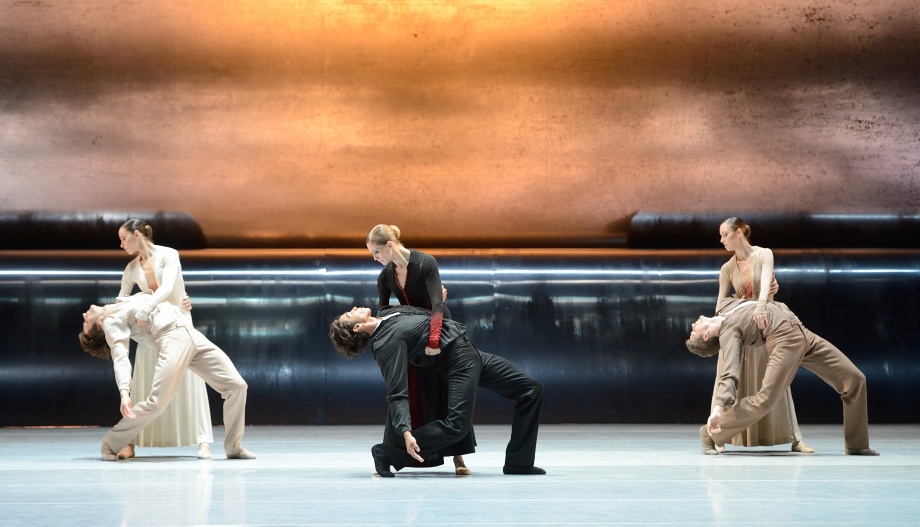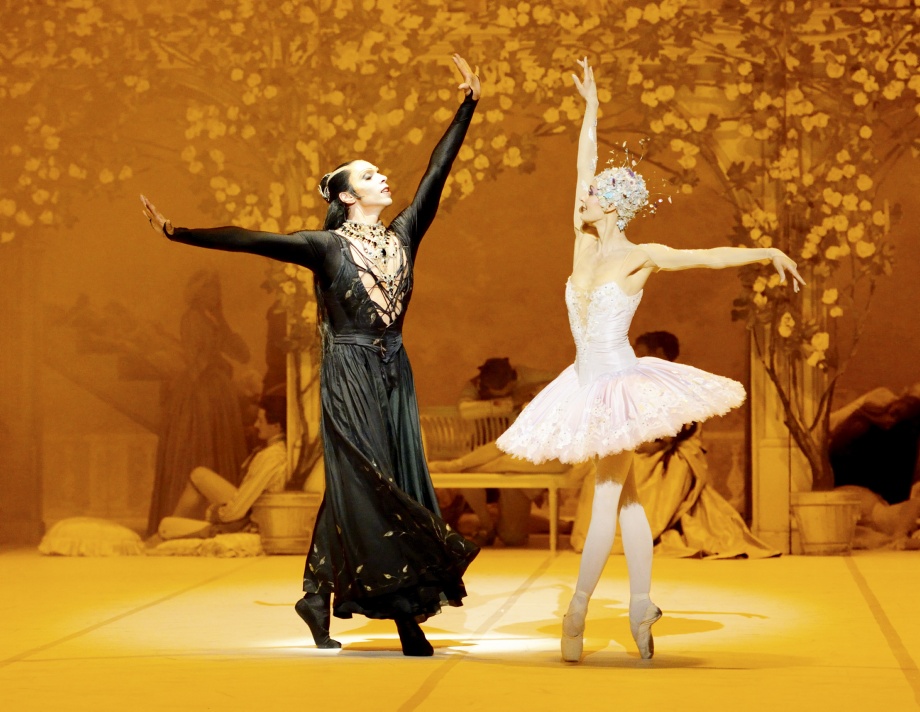Dull Orgy
“Salome”
Stuttgart Ballet
Stuttgart State Opera
Stuttgart, Germany
June 10, 2016
by Ilona Landgraf
Copyright © 2016 by Ilona Landgraf
 “Salome” is the second program-filling piece that Stuttgart Ballet’s resident choreographer Demis Volpi has made for the company. “Krabat”, also multi-act, in 2013 was his auspicious first attempt. Last year’s “L’Histoire du Soldat”, part of a triple bill dedicated to Stravinsky, was weak.
“Salome” is the second program-filling piece that Stuttgart Ballet’s resident choreographer Demis Volpi has made for the company. “Krabat”, also multi-act, in 2013 was his auspicious first attempt. Last year’s “L’Histoire du Soldat”, part of a triple bill dedicated to Stravinsky, was weak.
For “Salome”, Volpi again gathered the “Krabat” team. Vivian Arnold, Stuttgart’s director of the press, communications and dramaturgy, was in charge of the libretto and the dramatic direction. Set and costume designs are by Katharina Schlipf. Lighting is Bonnie Beecher’s. This time, though, the quartet’s work fell short. (more…)



